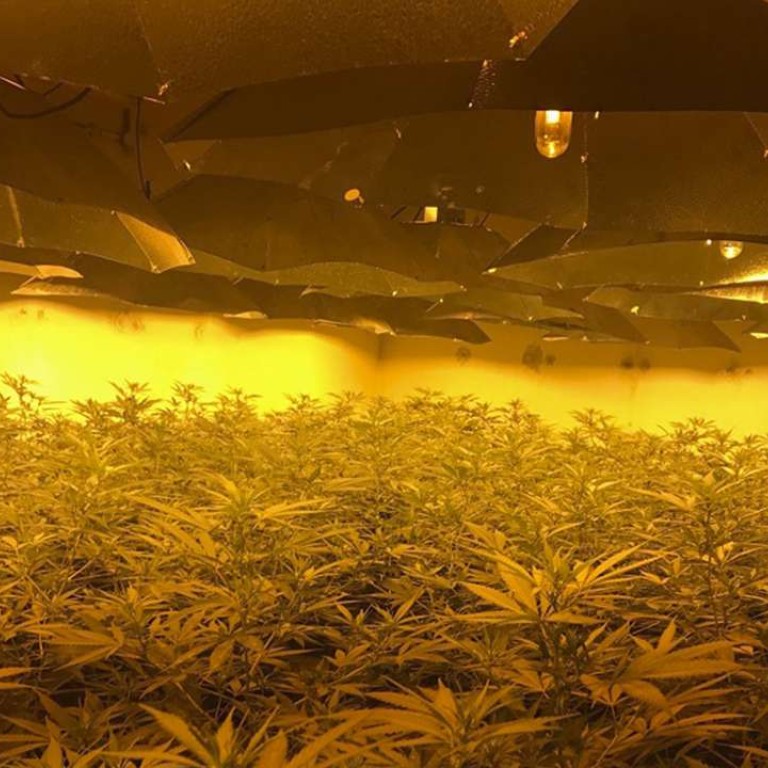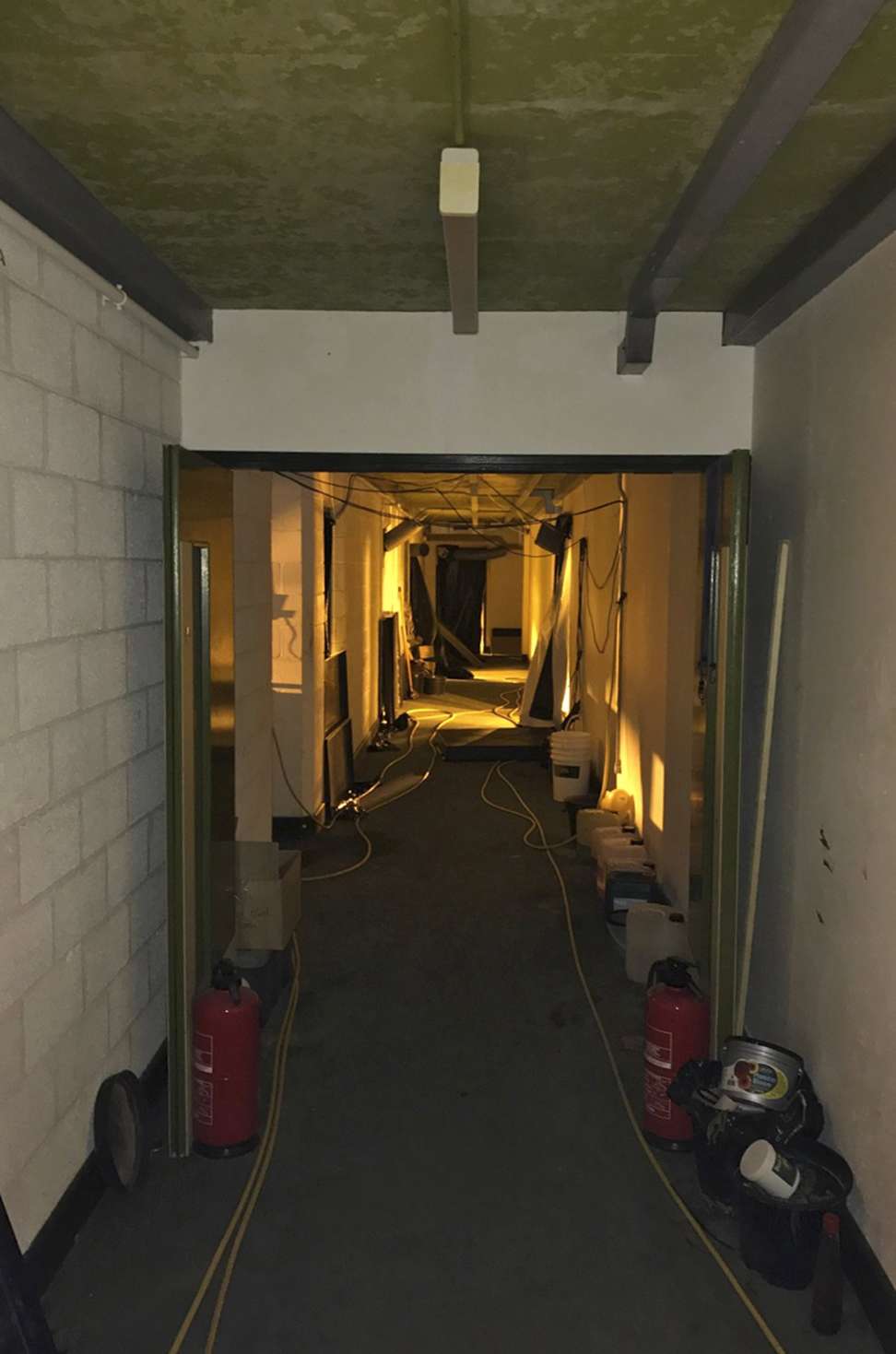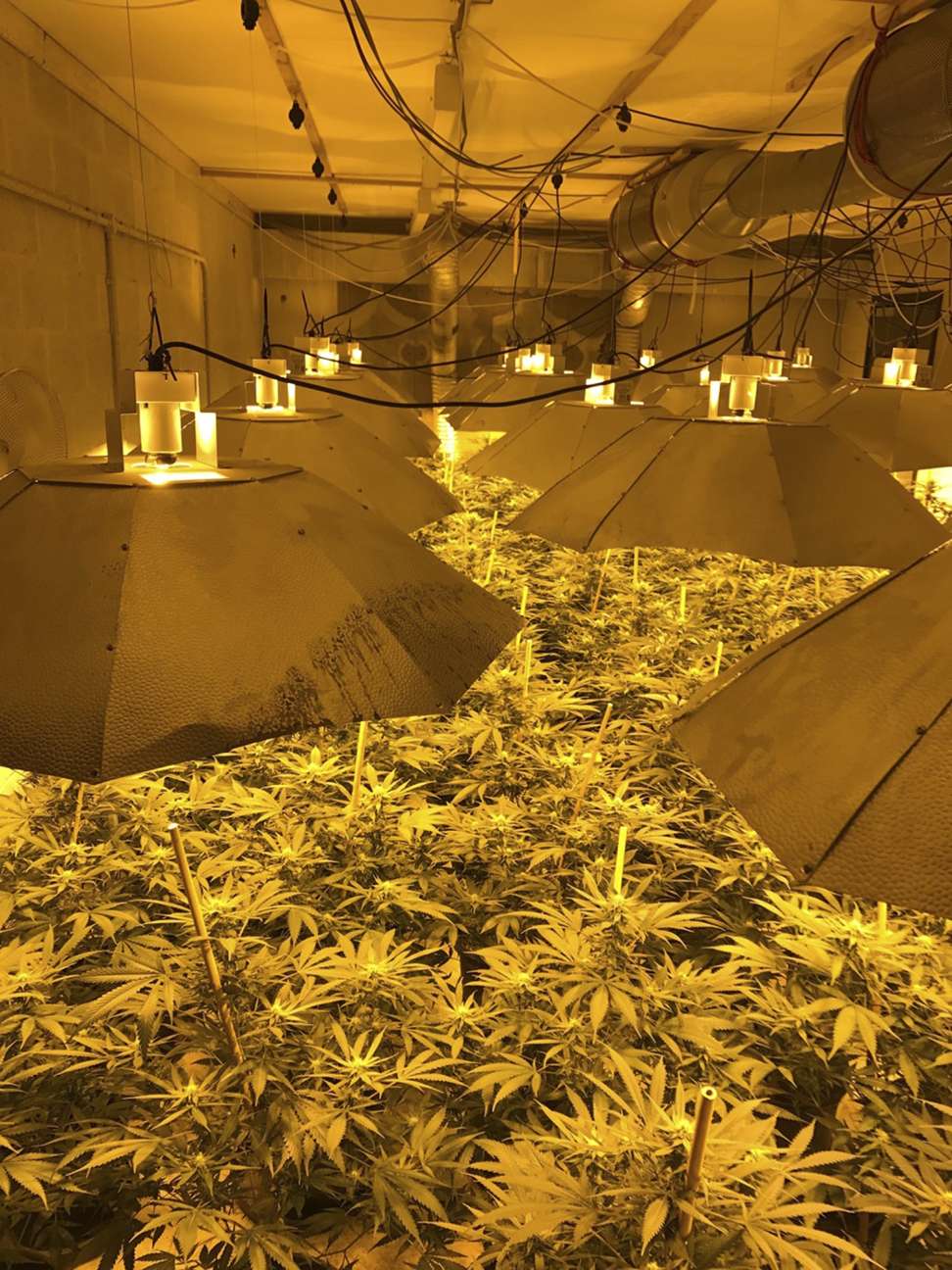
Huge cannabis farm in UK nuclear bunker was staffed by trafficked Vietnamese teenagers
There was no natural light, no fresh air and water had to be physically brought in. Deep inside a former nuclear bunker in Britain’s countryside, Vietnamese teenagers worked in slave-like conditions, tending to a vast marijuana farm of several thousand plants worth an estimated £1 million.
The three teenagers, the youngest of whom was initially thought to be 15, and one adult in his 30s, were found working as gardeners inside the 1980s bunker in Wiltshire in a midnight raid on Wednesday.
Detective Inspector Paul Franklin from Wiltshire police said officers recognised that the four gardeners were victims, adding: “No one would do this by choice.”
He described the living and working conditions in the 20-room bunker, hidden in the countryside, as “grim for anyone, let alone a 15-year-old”.
“This was slave labour ... I was shocked by the scale of it,” Franklin said.

“There is no fresh air, just the cloying, sweet humid smell of the plants that permeates everything.”
Detectives were trying to establish whether the four men were able to come and go freely or were locked inside RGHQ Chilmark, built in 1985 to serve as the regional government headquarters in the event of a nuclear attack. The two-storey underground site is no longer owned by the Ministry of Defence, but remains intact, with protective nuclear blast doors still in place.
It was unclear whether the workers had been held there for several months, since the cannabis plants were seedlings, or if they were working in rotation with other gardeners. There were several thousand plants, approximately 200 in each of the bunker’s 20 rooms, at various different stages of growth.
Three British men were charged on Friday afternoon with conspiracy to produce cannabis, and conspiring to hold another person in slavery or servitude. The four Vietnamese men were released from custody, and were told no further action would be taken against them. An age assessment conducted while they were in the police station provisionally put the three teenagers at about 19 years old.
There was plenty of food in a fridge in the bunker’s kitchen, police said, and a basic sleeping area in one room. “We believe they had no choice. I think they were held there in human-trafficking, slave conditions,” Franklin said. “We have never seen anything on this scale.” He said the men, who spoke no English, had been “very fearful and apprehensive” when they were arrested. Officers were trying to establish whether the men could be assigned to the national referral mechanism, the framework for identifying victims of human-trafficking.

But police last year discovered a number of much larger operations, raiding an ex-Barclays bank in Grimsby, a disused sports centre in south Wales, and a recently emptied GP surgery in Cumbria that had all been turned into cannabis farms, tended by Vietnamese workers.
Former prime minister David Cameron visited Vietnam in 2015, and promised to crack down on the trafficking of children to work in UK nail bars and cannabis farms, but the flow of Vietnamese children into the country continues, and there has never been a prosecution of a people trafficker from Vietnam.
Franklin said there was a lack of public awareness about the conditions in which cannabis was produced for UK consumers.
“On social media people are asking: ‘Why are police taking action on cannabis? It’s harmless.’ I think perhaps people don’t appreciate that these are the conditions people are working in, that people are being trafficked, and that this is what it takes to get that product on to the streets.”
Anne Read, the director of anti-trafficking and modern slavery at the Salvation Army, who has worked with Vietnamese people trafficked for cannabis cultivation over the past eight years, said their numbers had risen during the last two years.
“They tend to be young men, they are nearly always locked into a premises so they have no contact with the outside world. They don’t know where they are, what part of the country they are in, and they usually don’t speak English,” she said.
“Sometimes their clothes are taken from them, so they are left in their shirts and underpants, making it harder to escape.”
Often young people were told in Vietnam they were going to be helped to find legitimate work in the UK, she said; sometimes they were unaware that this was an illegal activity, and were told they were growing Chinese medicinal herbs. “The traffickers encourage them to build up a debt over a period of time that they will never be able to pay off. Then they are trapped, threatened and frightened for their families.”
Chloe Setter, the policy head at children’s charity Ecpat UK, which specialises in child trafficking victims, said she was concerned that the age of the youngest teenager had been questioned: “Those found in cannabis factories are often teenagers from Vietnam who have no identity documents and whose ages are disbelieved. Such a culture of disbelief puts young people at risk and often leads to them being retrafficked.
“We are extremely concerned that, despite new legislation and oft-vaunted promises about eradicating modern slavery, there are still children and young people being exploited as ‘gardeners’ in cannabis factories across the UK, often right under our noses. Many people who smoke cannabis do not appreciate the exploitation that is involved in its production.”

